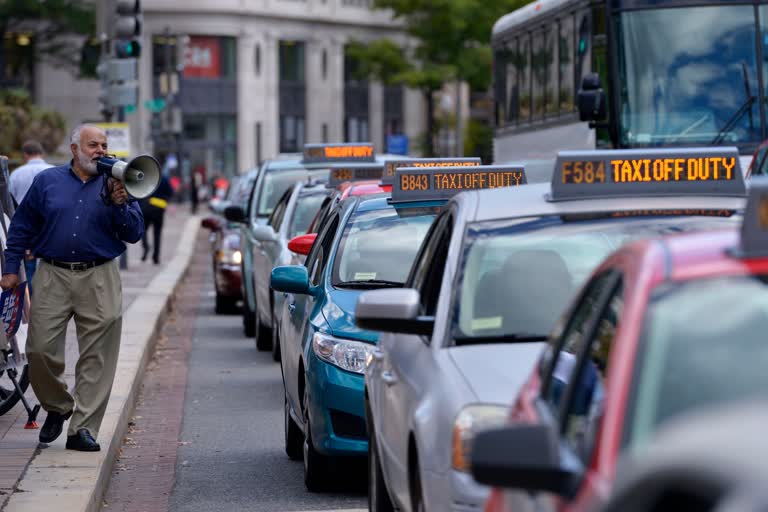New York: Thousands of Uber and Lyft drivers turned off their apps in a US-wide strike on Wednesday over pay and working conditions, casting a shadow over this week's keenly anticipated Wall Street debut of ride-hailing leader Uber.
Uber is expected to launch its initial public offering (IPO) on Friday giving it an estimated valuation of some USD 80 billion, one of the biggest tech listings in recent years but rather lower than its earlier hopes of around USD 100 billion.
The launch will be a major milestone for the company, which has raised billions and disrupted the taxi industry in cities around the world.
It will also come in the rear-view mirror of a troubled market debut for Uber's largest US rival Lyft, which has lost more than 15 per cent of its value since its March IPO.
Strikes that took place on Wednesday highlighted a dilemma for rideshare firms, which have faced challenges from regulators and traditional taxi operators for using a business model relying on independent contractors.
One group protested outside the New York Stock Exchange, where Uber is set to list shares, with some signs reading "Invest in our lives -- Not their stocks."
Similar actions took place in Boston, Chicago, Los Angeles, San Diego, Washington and in Uber's home town, San Francisco.
Protests were held in Britain as well with drivers in London, Birmingham, Nottingham and Glasgow called on to log off apps and demonstrate outside Uber offices, according to the Independent Workers' Union of Great Britain.
Rideshare companies maintain that drivers are able to thrive and maintain work flexibility and that their business model would not work if drivers were treated as wage-based employees.
Uber and Lyft did not immediately comment on the protests.
"While we aim to provide an earnings opportunity comparable to that available in retail, wholesale, or restaurant services or other similar work, we continue to experience dissatisfaction with our platform from a significant number of drivers," Uber said in a filing with securities regulators.
"In particular, as we aim to reduce driver incentives to improve our financial performance, we expect driver dissatisfaction will generally increase."
Uber's inauguration as a public company will follow a rocky market debut for Lyft.
Lyft's losses in the past quarter widened to USD 1.1 billion, according to its first financial report as a public company.
Revenue for California-based Lyft nearly doubled from a year earlier to USD 776 million and the number of active riders grew to over 20.5 million.
Lyft said its losses deepened as a result of $894 million in costs that included stock-based compensation and related tax expenses in connection with its IPO.
